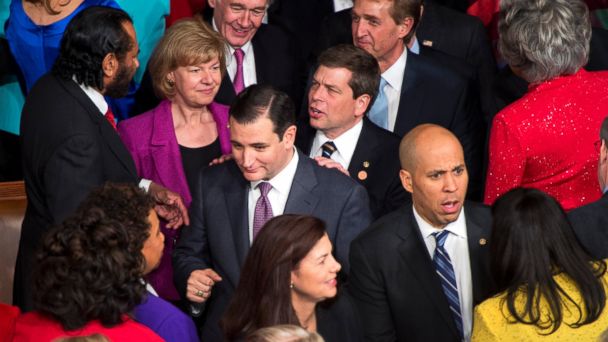Here's Why Congress Is Losing 660 Years of Experience

Tom Williams/CQ Roll Call/Getty Images
Before the first Star Wars movie, before Microsoft was founded and before John Paul II became Pope, Rep. Henry Waxman, D-Calif., was elected to Congress. And now, after 40 years in the House, Waxman is calling it quits.
But he's not the only one: A whopping 528 years' worth of experience is about to walk out the door of the U.S. House of Representatives - the most since 1996 and the second-most in at least four decades. Add that to the 132 years of experience leaving the Senate, and you get a staggering total of 660 years.
When we caught up with Waxman, as well as his longtime coworker from across the aisle, Rep. Tom Petri, R-Wis., to talk about their tenures in Congress, there's one word they both agreed described Congress today: gridlocked.
"I think that the Congress is much more partisan and paralyzed than I've seen it in my whole career," said Waxman, who was elected in 1974.
Of 435 members in the House, the group of retiring representatives - so far - has served 264 combined terms. Retiring congressmen also boast the second-most years served per member in the last four decades; members retiring in 2014 chalk up 21.1 years per member, falling short only of the 23.8 years per member of the class that left Congress in 2006.
The 132 combined years of experience retiring from the Senate this year is the third-highest in the last four decades, and the number of years per member - 22.0 years - is the second-highest in the same time span.
The Senate boasts its own long-serving members: Carl Levin, D-Mich., served for 36 years, while Jay Rockefeller, D-W.Va., and Tom Harkin, D-Iowa, put in 30 years apiece.
Retiring members aren't the only thing changing the face of the Senate in 2014. Republicans are fighting to pick up six seats in the midterm elections to gain control of both chambers of Congress this November.
Petri, the Wisconsin Republican who has 36 years of the half-millennium of experience leaving the House, pointed to the divisions in Congress, saying that the constant use of roll call votes changed the culture from a time when a significant portion of legislation passed by voice vote.
"The way Congress actually functioned as far as voting was quite a bit different than it is now," he said. "There weren't many roll call votes in the Congress, which meant there were not many occasions for people to get 101 different little votes so that this group and that group could have a scorecard. It used to be that if you didn't get a certain number of people to stand up … there wouldn't be a roll call."
Petri also pointed to the expanding power and centralization of party leadership as a barrier to compromise and productivity.
"Party leadership's job is, obviously, to keep their caucus together and establish party positions. But [party leadership] and their staff don't really have the expertise that the committee members and staff do, so a lot of things kind of get screwed up in the process," he said.
He added that because party leadership bases its committee picks on loyalty to the party, it prevents members who are willing to compromise from gaining key legislative positions.
"The committee on committees is largely controlled by the leadership, so they make judgments on loyalty and that reduces the independence of the membership," Petri said.
Waxman pointed his finger across the aisle at Tea Party conservatives as a major source of congressional paralysis in recent years, encouraging them to come to the table.
"I think there's a civil war among Republicans. The Tea Party extremists … are against compromise at all [and] think talking to Democrats is like complicity with the enemy," he said. "I think that the American people have to demand that representatives look to act in a way that's in national public interest."
But both Petri and Waxman cautioned against overreacting to the gridlock, saying that legislating has always been challenging.
"I find [the gridlock] unfortunate, but I don't think people ought to overstate it," Waxman said. "We've had times when it's been difficult to get legislation passed or develop compromises. It often takes time and perseverance. A lot of the legislation I authored into law took many years to pass."
"The legislative process is sort of designed to be frustrating," Petri said. "The truth is that there still is a lot of camaraderie, despite what the impression is, between members across party lines. People get along on most committees; they share a lot of interests."
Petri and Waxman finish their tenures on Jan. 3, 2015, when the new House will be sworn into office to close out the remainder of the Obama presidency.